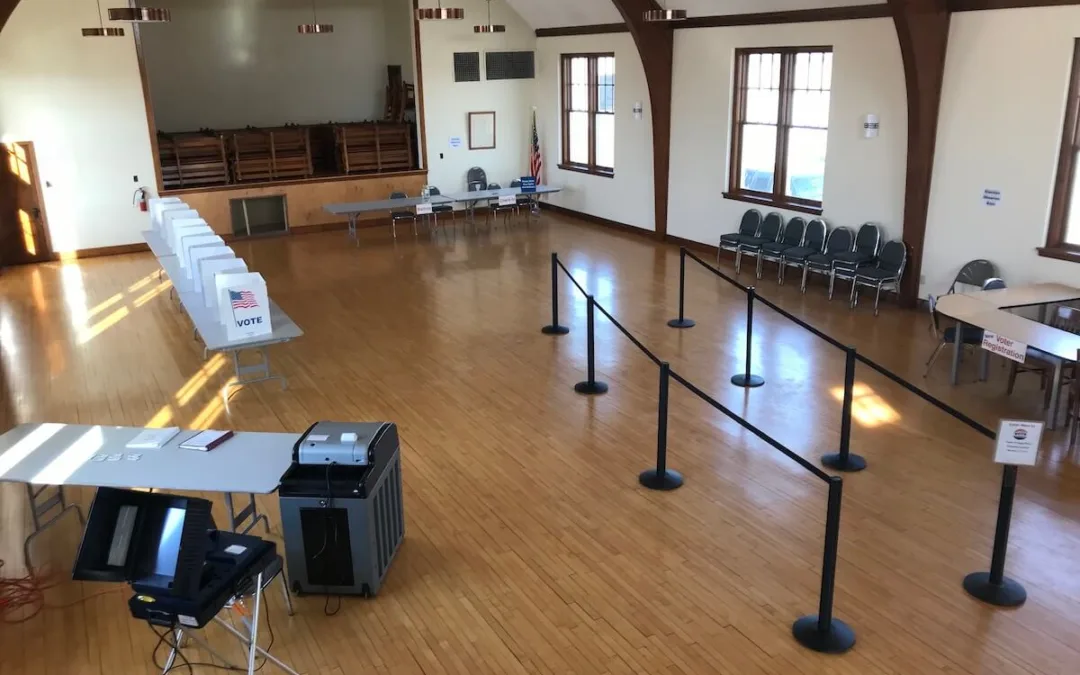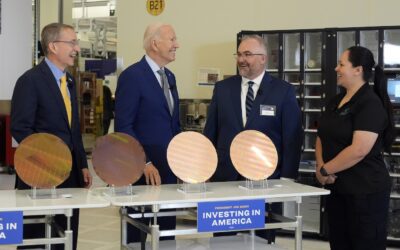
#image_title
Biden’s American Jobs Plan, which sets aside $621 billion for transportation, would be a shot in the arm, but long-term needs remain at the state level.
It will likely come as little surprise to most Wisconsinites that the state’s roads—replete with potholes and decaying pavement—are rated a D+ by the American Society of Civil Engineer’s (ASCE) annual Infrastructure Report Card.
The poor roads cost Wisconsin drivers $6 billion per year in vehicle maintenance costs, wasted gas in traffic jams, and road damage from crashes; bad roadway features are a factor in a third of the state’s traffic deaths, ASCE estimates.
And, despite recent increased funding for the Wisconsin Department of Transportation (DOT) under Gov. Tony Evers, the situation could get worse. ASCE projects the state will have a $13 billion roads budget shortfall over the next decade. The new $2 trillion jobs and infrastructure plan being pushed by President Joe Biden, which allocates $621 billion to transportation infrastructure, could go a long way toward helping Wisconsin catch up.
Joe Nestler, administrator of the DOT’s Division of Transportation Investment Management, said that while DOT cannot specifically speak to Biden’s plan because it is so preliminary, the department will take any extra money it can get.
“State and local transportation needs, they far outweigh available funding. That’s a given,” Nestler said. “And so, any additional funding that we receive from this infrastructure bill can be put to good use.”
Biden’s infrastructure proposal—promoted as the “American Jobs Plan,” not to be confused with the recently passed stimulus-centered “American Rescue Plan”— is still subject to change and there is already bipartisan unease with many of the provisions, some of which Republicans argue go beyond what they consider to be infrastructure. But what Biden has laid out would undoubtedly be a boon to affected workers, cash-strapped transportation entities, and the state’s future economic growth at large, said Greg Nemet, professor at UW-Madison’s La Follette School of Public Affairs.
“It’s an investment—and it’s not small dollars, and there’ll be a price to pay for it—but I think it’s a worthwhile price to pay because it sets us up to grow in a way that would be hard to do with our existing infrastructure,” Nemet said.
RELATED: Infrastructure Is Good Politics—Just Ask Milwaukee’s Sewer Socialists of 1904
As of February, DOT has four major highway studies and 19 projects in progress. These projects can single-handedly create thousands of direct and indirect jobs and spur economic growth, but “funding is always an issue” because the projects can run into the range of hundreds of millions of dollars, Nestler said.
Mark Gottlieb, associate director of UW-Milwaukee’s Institute for Physical Infrastructure and Transportation and DOT secretary from 2011-17, said there is a need for extra funding in Wisconsin. Based on the sheer size of Biden’s transportation funding proposal, he said, the state would expect to see billions of dollars.
“It is a very ambitious plan—$621 billion is a lot of money by anybody’s standards,” said Gottlieb, who resigned as DOT secretary after Gov. Scott Walker repeatedly refused to support increased roads spending.
Even a billion dollars of that pot would be a huge portion of the state’s overall transportation budget. Evers has proposed $6.4 billion in state transportation spending for his 2021-23 budget, a more than $200 million decrease from his 2019-21 budget proposal, a symptom of lost revenue from the COVID-19 pandemic.
The DOT “is truly doing the best job that they can with the resources that they have available,” Gottlieb said, but he worried about the long-term implications for the state’s transportation infrastructure if state lawmakers continue to ignore the rising need for funding because they don’t want to raise taxes.
Biden’s plan is not a permanent, recurring investment. It would span eight years, so Gottlieb said he expects Wisconsin will end up facing further shortfalls down the line if state elected officials don’t take more action to give the state’s roads a more stable funding foundation.
“There’s a danger in saying that you’re just going to rely on the federal government always coming to the rescue,” Gottlieb said. “And it is very much, I think, in the state’s interest to have a long-term, sustainable source of funding for transportation that the state can rely on.”
The 2019-21 budget, though, included a sizable $320 million boost for roads and bridges. That budget raised additional revenue for DOT by increasing the state’s vehicle registration fee from $69.50 to $164.50. Evers also tried to increase the gas tax in the budget to raise more money, but Republican lawmakers shot that down.

Election 101: If you’ve tuned out until now, here’s what to know for April 1
Wisconsin goes to the polls to decide control of the state Supreme Court and determine who’s in charge of schools—plus a constitutional referendum,...

Opinion: Facing the climate crisis
America has a responsibility to embrace a leadership role in addressing the climate crisis. "Physics does not care about our politics, and...

Opinion: Rolling back climate advances puts America at risk
Transportation Secretary Sean Duffy wants to roll back progress while ignoring the threats to infrastructure and national security from a changing...

Biden sets 10-year deadline for cities to replace lead pipes and make drinking water safer
A decade after the Flint, Michigan, water crisis raised alarms about the continuing dangers of lead in tap water, President Joe Biden is setting a...




